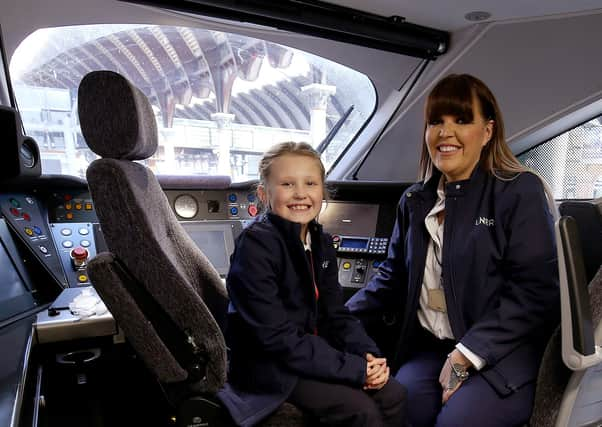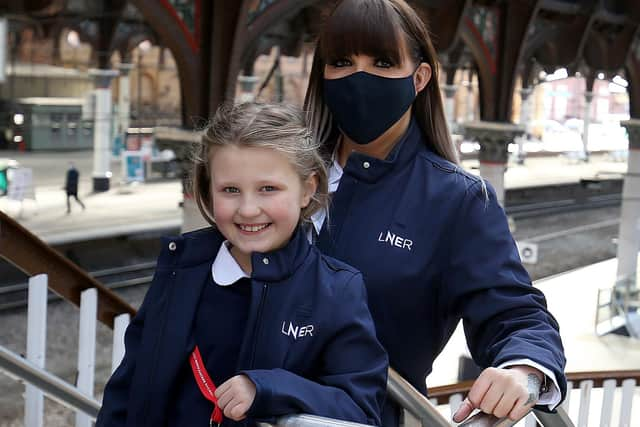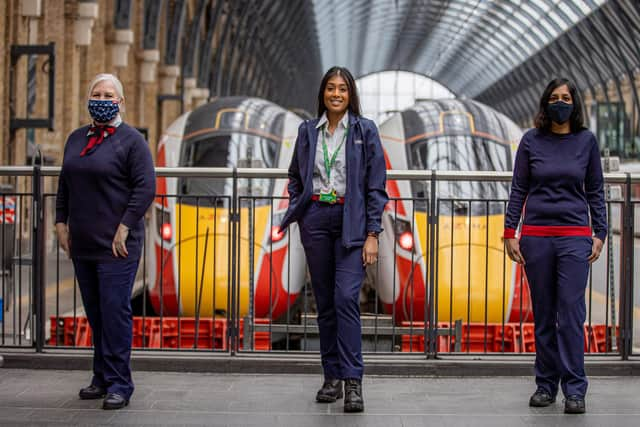LNER pledges to double female train driver applicants to 40% by 2025


The total has increased from 7 per cent of applications in 2017 to 17 per cent last year, but the firm wants to boost this to 40 per cent by 2025.
The launch of LNER’s new drive in advance of International Women’s Day on Monday comes a year after it rebranded its flagship Edinburgh-London Flying Scotsman service as the Flying Scotswoman for a month to encourage more women to consider a rail career.
Advertisement
Hide AdAdvertisement
Hide AdWomen comprise some 40 per cent of the operator’s workforce compared to 16 per cent across the industry, and around half its executive board are female.
Other senior female leaders on the railways in Scotland include new Caledonian Sleeper managing director Kathryn Darbandi, ScotRail engineering director Syeda Ghufran and its head of projects Kirsty Devlin.
British Transport Police, which covers the rail network on both sides of the Border, has also just appointed a female chief constable – Lucy D'Orsi.
LNER said only 1 per cent of women had wanted to be a train driver when they were youngsters compared to 28 per cent who aspired to be a teacher – the most popular choice.


Women account for just 10 per cent of LNER drivers, but that’s above the 6.5 per cent industry average.
Historically, it was about the only rail job denied to them when they took over other roles, such conductors, during wartime.
However, potential future recruits include the daughter of a Leeds-based LNER driver who has said she wants to follow in her mother's footsteps.
Maisie Brown, eight, is inspired by mum Becky, who has been driving trains for almost ten years.


Advertisement
Hide AdAdvertisement
Hide AdMaisie said: “I’m proud of mum because it’s really hard to get this job and it is just really important and you are helping people, basically, get to different places.”
Becky Brown said: “Driving a train is an interesting job, although I do get surprised looks when people ask me what I do for a living and when people see a woman driving the train as it pulls into the platform.
“I love hearing from my daughter that she too wants to be a driver, as it’s such a unique career path.
"It allows me to be flexible and spend more time with my family than I might do in a 9-5 role.”
Trudi Kinchella, who has been a driver for nearly 28 years, said: "When I first started, I didn’t think there were any women on the railway at all.
"You’d be lucky if you saw anybody, somebody possibly in pay bills or serving the tea on the train, but nothing like now.
"There’s opportunities in every single job at every level for women on the railway.”
LNER people director Karen Lewis said: “Our research found that for women of working age, fewer than a third had considered a career path as a train driver, with 14 per cent of those considering it a male-dominated industry and 27 per cent just not knowing much about it.
Advertisement
Hide AdAdvertisement
Hide Ad“It’s proof the rail industry needs to do more to show women the fantastic career opportunities it can hold, across an extremely broad range of roles, skills and professions.
A message from the Editor:
Thank you for reading this article. We're more reliant on your support than ever as the shift in consumer habits brought about by coronavirus impacts our advertisers.
If you haven't already, please consider supporting our trusted, fact-checked journalism by taking out a digital subscription.
Comments
Want to join the conversation? Please or to comment on this article.